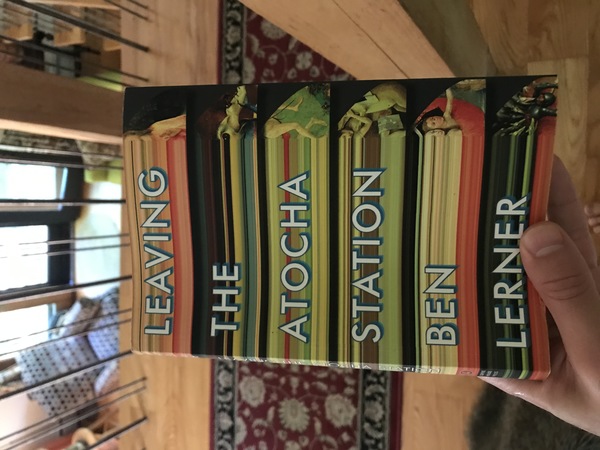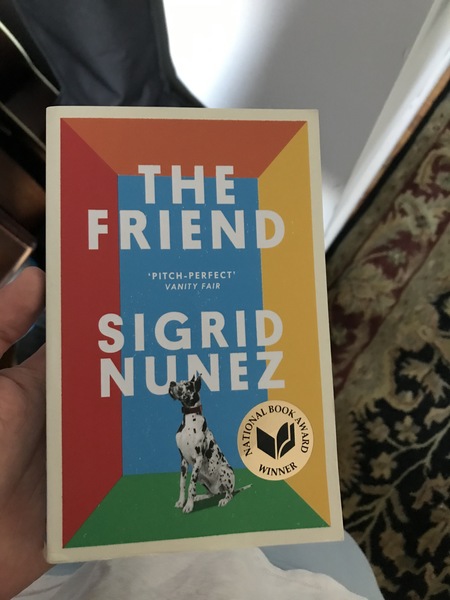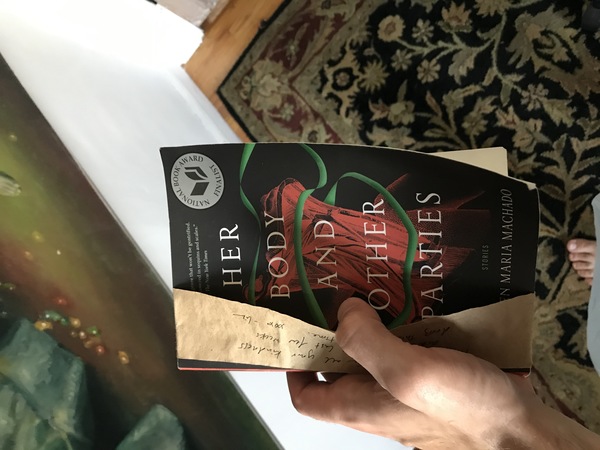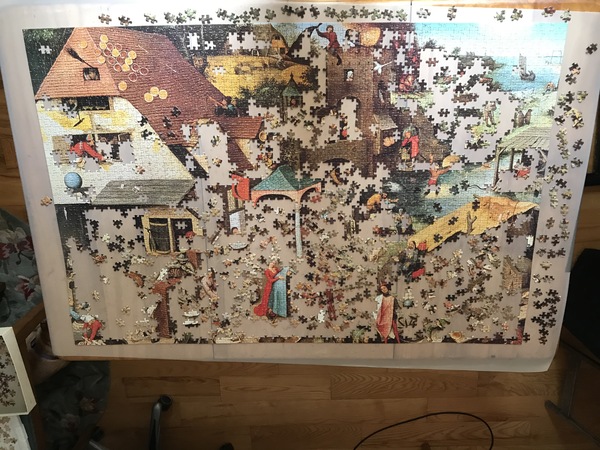Bellows // Quarantine Bookclub with Oliver
Anyone who knows me knows I'll take any opportunity to talk about books, get and give recommendations, and/or start a little book club. When I saw Oliver Kalb from Bellows posting a picture of Leaving the Atocha Station by Ben Lerner on Instagram we struck up a little back and forth about what we've been reading and I asked him if he'd want to send me a little list of what he's been reading in quarantine. I've since started down the Lerner rabbit-hole, thankful for the recommendation, and happy to pass this list along to any and all interested. Thanks Oliver!

Ben Lerner - “Leaving The Atocha Station”
I discovered Ben Lerner during lockdown and read all of his novels really quickly, I love him. Atocha was my favorite, I love that Lerner lets his narrator be a bad model for behavior & sort of an antagonist in his own life. The narrator of Atocha is a poet who hates poetry and a grant recipient in Madrid who doubts his own Spanish ability — the whole book is steeped in the difficulty of translation, the narrator feels as though poetry can’t really translate life experience and that his ability to translate his feelings into Spanish is limited. There are hilarious passages where he deliberately pretends to be bad at Spanish in order to fill his silences with an air of aloof poetic depth, thinking that people around him will see him as enigmatic and mysterious if his Spanish seems poorly translated, imbuing each slightly incorrect word choice with a matrix of possible meanings that feel more interesting than what he intended. I kind of relate to that feeling as a lyricist, like it can feel like an easier route to just say something sort of enigmatic than something straightforward. I think it’s a mark of maturity to just speak plainly, and Lerner portrays the ways young writers can be drawn to enigma in a really funny way.
I love that Atocha captures the insecurities of being a young artist and badly wanting the respect and admiration of one’s peers without fetishizing youth or falling into obnoxious cliches about youth culture. Lerner’s writing is mature, reasoned and complex even as he describes youthful weakness, which makes the youthful weakness feel like something you can fall deeply into as a reader instead of feeling repulsed by. There’s a lot of empathy and forgiveness for a weaker past self here, and a lot of wisdom about communication and the deep weirdness of ways we communicate with others nonverbally.

Sigrid Nunez - “The Friend”
The Friend is a book about grief told through a relationship with a dog — basically the narrator of the book loses her close friend and literary mentor to suicide and takes in his Great Dane. The dog, Apollo, is grieving for his old owner while the narrator is coming to grips with the complexity of her relationship with her late friend, a carouser and womanizer who was nevertheless a big influence and positive force in the narrator’s development as a writer.
I read this book at a time when I was dealing with a loss of my own & was struck by how well the book reflects the emotional poles that one can flip through after losing an important person. As the narrator tries to interpret Apollo’s grief signals, which are elusive and unintelligible, she works through memories of the charismatic force of a man who shaped her life. She confronts his limitations and weaknesses at the same time as she honors the person she became under his guidance and influence. I loved that the book doesn’t fall into a simplistic indictment of the dead friend at the same time as not shirking responsibility for telling the story of his full guilt. I think this book has a lot of wisdom for anybody who’s dealt with a complex or caustic friendship & how to hold two truths at once: this person hurt me & also formed the person I am today and I’ll always be grateful for that.

Carmen Maria Machado - “Her Body and Other Parties”
I had a funny synchronicity experience with this book where right at the time I started reading it, the writer Carmen Maria Machado happened to be guest hosting on a horror movie podcast I was listening to. So I suddenly had a lot of time with her, through her own horror / fantasy related writing and through her ideas about the horror films she was analyzing on this podcast. She was a good companion for the horrific unreality of living through a major mass death event. A lot of Machado’s stories revolve around death and violence, and a few coincidentally deal with catastrophic viruses and plagues (even though all of these stories were written before Covid).
My favorite story in this collection, “Real Women Have Bodies”, revolves around a mysterious plague that makes women become incorporeal — certain women wake up to find they’ve become slightly translucent and then gradually lose their physical bodies before just disappearing into thin air. The main character works for a dressmaker and finds that the invisible ghosts of these women have been sewing themselves into dresses to give themselves physical form. I don’t want to ride the metaphor too hard, but something resonated about the idea of losing a physical self. I feel like throughout the pandemic I’ve felt like my disconnection from friends and from the world of music made me feel a tremendous sense of unreality around myself and my body. Like not having other people around to talk to or things to see and do created a dream-like, or sort of tenuous or unstable atmosphere in my everyday life, like my connection to the real felt kind of thin. That isn’t what this story is about but it fit with my experience in an eerie way. Machado’s stories feel like allegories to me, or like old fables with a strong sense of moral judgment and poetic justice. They’re formally almost like children’s stories (even though most of the stories are about sex and violence)— there’s something about them that seems to be reaching for a deeper allegorical logic. This one and “Inventory” are both pretty spooky to read during a pandemic.

Puzzle of Pieter Breughel’s Netherlandish Proverbs
I used the opportunity of being stuck inside for months to start a 3000 piece puzzle of Pieter Breughel’s Netherlandish Proverbs. The puzzle is huge. I’ve been working on it since April and I think I’m like halfway through. Doing a puzzle this big is cool because it makes you slow down and interpret small visual details with a lot more care. I’ve always been a fan of Breughel but have never spent this much time looking at one of his paintings (or any painting). I know this painting more intimately than any song or book I’ve ever read. I recommend puzzling as a meditative practice — especially if you are an overactive or anxious thinker like me, I believe that you can find a lot of peace in paring your life down to fitting puzzle pieces together and working on a project so big. It is its own reward!
Stay in the know: Subscribe to get periodic email updates specifically about new Bellows music, tours & exclusives.









